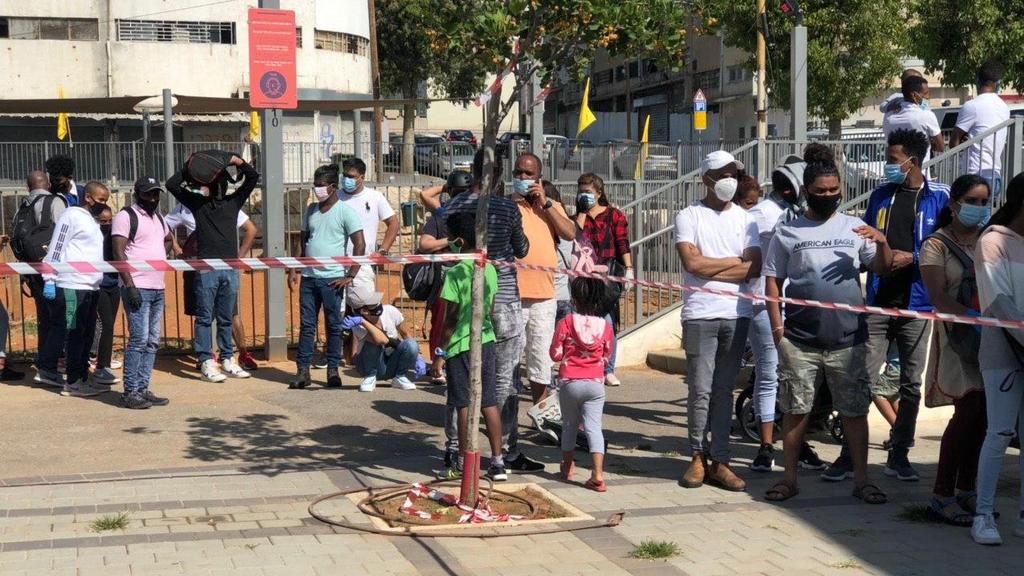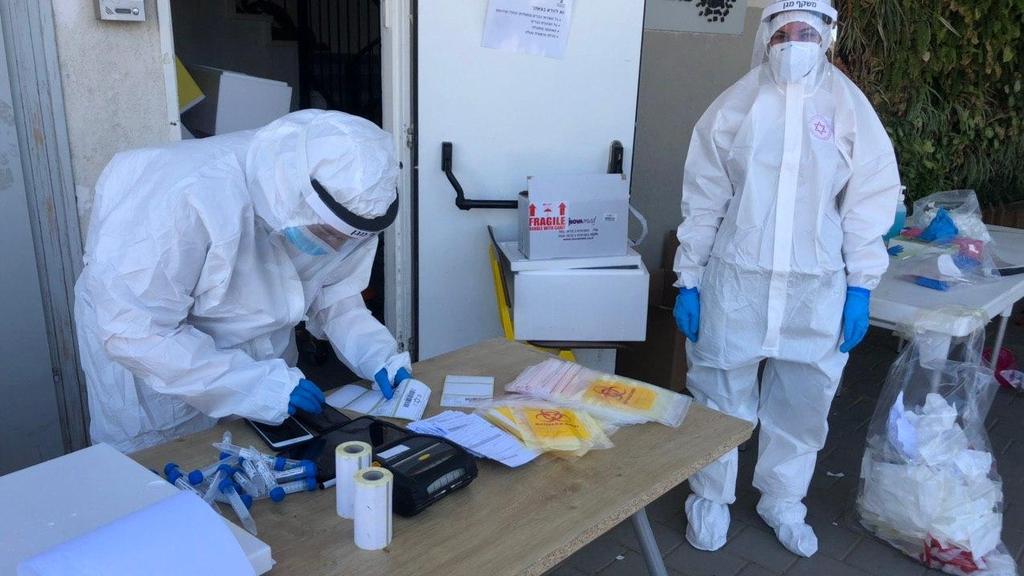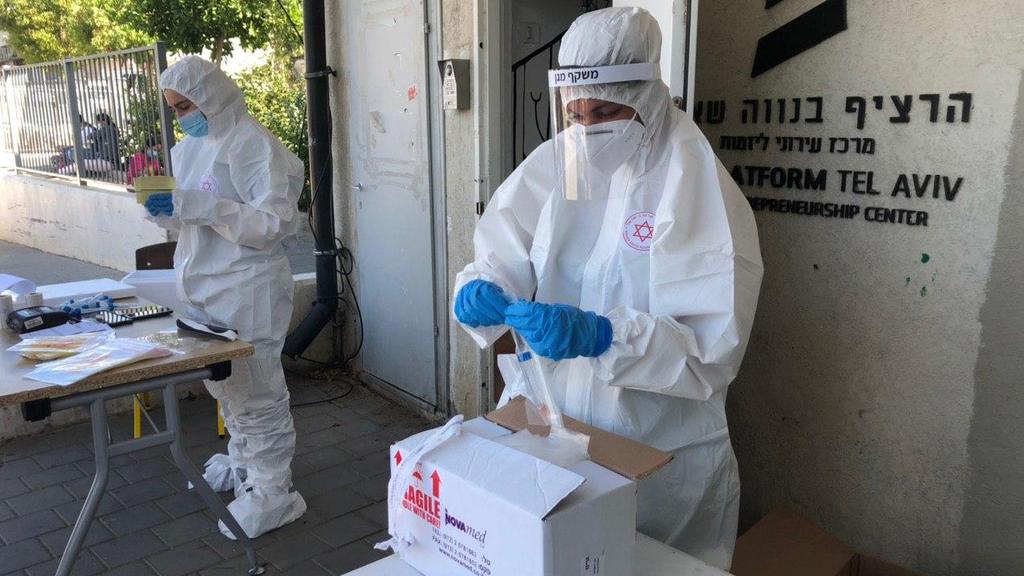Israel’s health officials estimate there are hundreds of foreign workers in the country infected with coronavirus, who might unknowingly be passing the virus on to others due to their reluctance to get tested and unsanitary living conditions.
The assessment comes following a report of the government's National Information and Knowledge Center, which revealed that last week along 19 foreign workers have tested positive for COVID-19, bringing the total to 83.
4 View gallery


Foreign workers in south Tel Aviv in line to get tested for coronavirus
(Photo: Negev Abbas )
The data also shows that 25% of virus tests taken by foreign workers return positive, much higher than in the general population.
Officials estimate that in Tel Aviv alone there are currently 40,000 foreign workers and asylum seekers, about 7,000 of whom are minors. Half of them appear to be asylum seekers from Eritrea and Sudan with the other half being legal and illegal migrant workers, most of whom are from West and Central Africa and the Philippines.
The majority of them live in south Tel Aviv, where a coronavirus testing center, established specifically for the foreign workers, has been operating on and off since the start of the outbreak in Israel.
4 View gallery


Foreign workers in south Tel Aviv in line to get tested for coronavirus
(Photo: Negev Abbas)
Many of the workers, however, tend to avoid getting tested out of fear that a positive diagnosis would put them out a job. Many of the workers and asylum seekers are employed in sectors of the economy heavily affected by the health crisis, such as hotels and restaurants.
In addition, due to the crowded living conditions of most of the migrants, it appears to be extremely difficult for them to remain in isolation at their homes, resulting in them possibly spreading the infection into the surrounding environment.
According to the National Information and Knowledge Center, the Health Ministry does not know where most of the COVID-19 patients from the community are self-isolating and the officials’ ability to locate them appears to be very limited due to some of them receding in the country illegally.
Furthermore, due to the lack of communication between the health authorities and the foreign workers, it is becoming increasingly difficult to determine if or when those infected with the disease have recovered.
One asylum seeker from southern Tel Aviv, who is employed as a dishwasher at a local restaurant, told Ynet he had no income for the past two months since he is not eligible for any welfare benefits after being put on unpaid leave.
"We just returned to work this week, after more than two months, we don’t have a shekel left, and if we’ll get coronavirus, no one will help us, because we do not receive unemployment benefits like the Israelis,” he said. “Even if we do have the virus, we don't get sick because we're young and healthy. So, we have no reason to get tested."
The Kav LaOved organization, which helps workers without a legal status in Israel, said the only solution to the crisis is for the government to provide them with social benefits in order to alleviate fears that getting tested would lead to loss of jobs.



